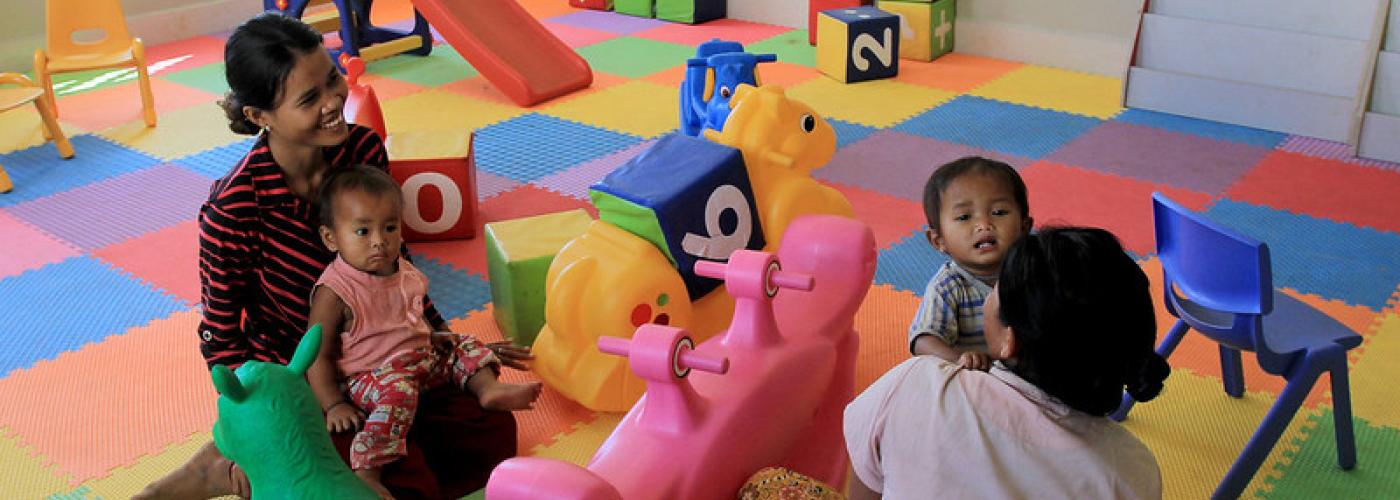USAID WEE CoP September Learning Event: Promoting Women's Economic Empowerment Through Early Childhood Care Programming
This event has passed
Event recording
Ask a Question About This Event
Image

On September 28, 2023, the USAID Women’s Economic Empowerment Community of Practice (USAID WEE CoP) hosted, “Promoting Women’s Economic Empowerment Through Early Childhood Care Programming.” We appreciate the 86 attendees from 25 countries who joined this virtual event and would like to extend a special thank you to our speaker and panelists:
- Dr. David Evans, Senior Fellow at the Center for Global Development, examined the global landscape of evidence linking early childhood care (ECC) to women’s economic empowerment (WEE) outcomes.
- Amy Luinstra, Manager, Global Operations (Acting), Gender and Economic Inclusion at the International Finance Corporation (IFC), highlighted IFC’s private sector approach to care and shared key learnings from employer-supported childcare models.
- Frances Beaton-Day, Co-Lead for Invest in Childcare at the World Bank (WB), outlined WB’s multi-pronged approach to care and pointed to collaboration with governments to advance ECC solutions and WEE.
- Sabrina Habib, CEO and Co-Founder at Kidogo, presented their innovative social franchising model that partners with women entrepreneurs (“Mamapreneurs”) in low-income Kenyan urban and peri-urban communities to increase access to quality ECC.
Here are three key takeaways from the discussion:
- Research on ECC interventions demonstrates positive impacts on WEE; notably related to employment, income, savings, and productivity. Research also indicates improved mental health and well-being for mothers, increased employment for grandmothers and older sisters of working age, and reduced absenteeism and employee turnover in businesses.
- There are various ECC models that we should continue to test, including community-based care, private and public daycare, and private and public preschool or kindergarten. Opportunities for expanding ECC include integrating ECC into public works schemes, health services, and education systems; working with operators in industrial or export processing zones to provide space for childcare; improving and expanding informal childcare centers; supporting women entrepreneurs to establish or expand childcare businesses; integrating a childcare training track into skills training programs; and implementing legal reforms to support a market for childcare.
- There is still a lot to learn! Questions of interest for future research:
- Which models and characteristics of care are most beneficial to WEE?
- Which additional WEE outcomes, such as women’s decision-making power, should we measure?
- How do we implement a comprehensive approach to ECC that improves the lives of care entrepreneurs who own and operate businesses (and may also provide care themselves) and of care workers?
- How do we address social and gender norms in care and promote norms shifts that advance WEE, including a focus on engaging men?
- How do we build trust with parents and caregivers to utilize ECC models that promote benefits for women, children, and care workers?
For questions about this event, or to join the USAID WEE CoP, please contact: fundcop@banyanglobalgita.com.



